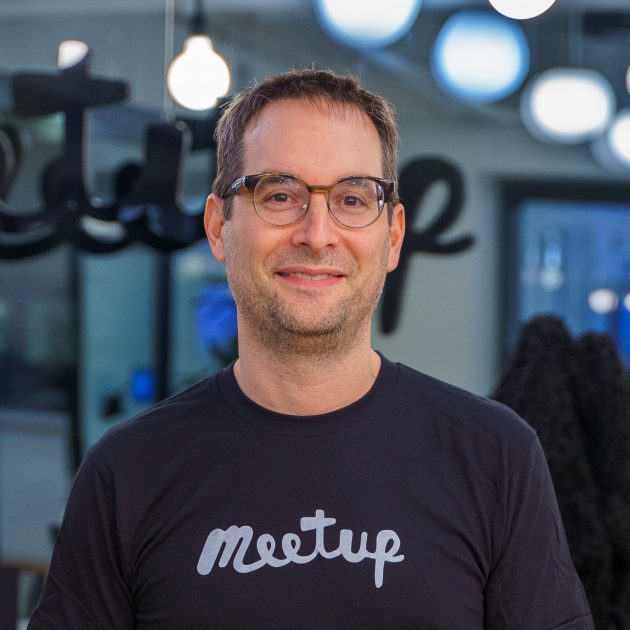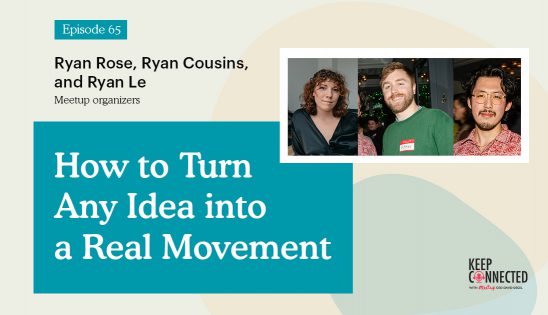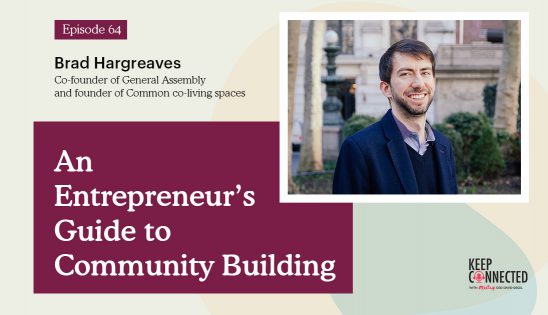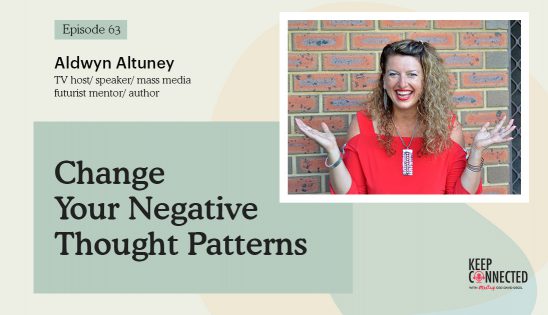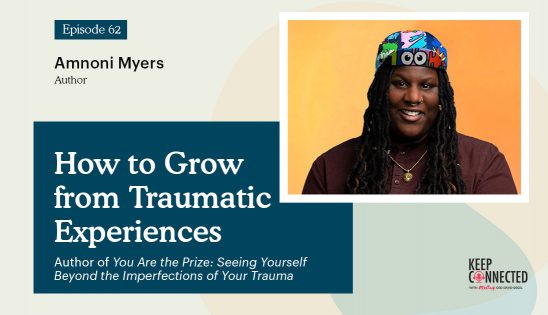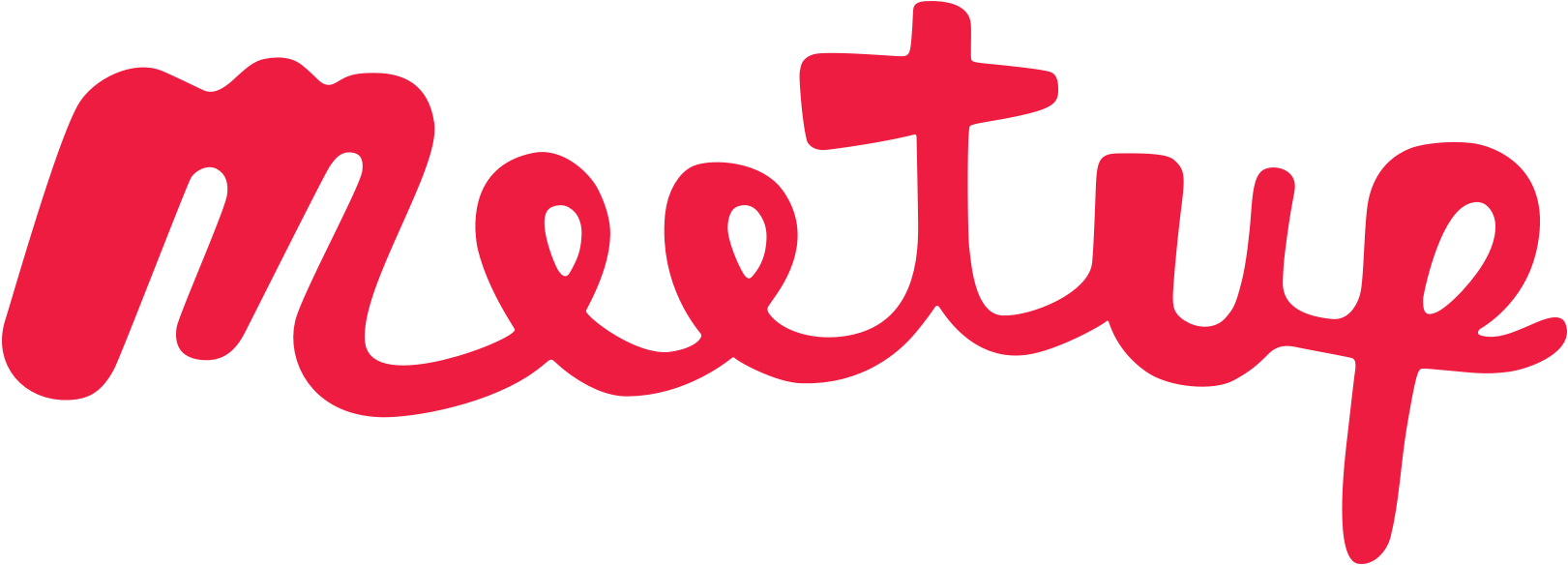Less than one year ago, Anthony Paul moved from Brooklyn to the Boston area without a single previous social connection. Today, he’s the organizer of the Cambridge “Finer Things” Culture Club, a Meetup group with more than 760 members! Anthony and David sit down to discuss the key elements behind this community’s meteoric rise and its place within a larger “human empowerment” movement. Topics include the often misunderstood connection between fulfillment and happiness, how to take small steps toward a big vision, and pursuing “edu-creation” as a path toward deeper friendships.
Show Notes
In this episode, we are talking to Anthony Paul. He’s the Organizer of the Cambridge “Finer Things” Culture Club in Boston, Massachusetts. He is also one of the most thoughtful people about what his role in the world is, what his talents are that he brings to the world, and how to combine those two together to build a meaningful, fulfilling life for himself and others. If that’s important to you, and I hope it is, enjoy our conversation.
—
Anthony Paul, welcome to the show.
Thanks for having me. I am very grateful to be here and excited to chat with you.
I am grateful for your email. I’ve never done this in a show, but we’re going to do things a bit differently because you’re a different guy. I’m going to start with an email that you sent to me months ago after we chatted at a Meetup event. Here’s what you wrote, “I came to the conclusion that my moral obligation was to maximize my potential, and hopefully, in doing so, help others maximize their potential.”
“For so long, I spent too much of my life programming video games with the goal of making them high art. I didn’t spend enough time socializing. By starting my Meetup group, I too can continue to learn for the long term while meeting people, helping people, and enjoying my time.” Have you sent an email to the CEO of other companies and expressed your connection to what they do beforehand or was this a one-time thing?
Was I the one who wrote that? Are you sure that wasn’t someone else? I’m kidding.
That was good. You got me nervous. That was great.
I can abstract that answer because it’s not particular to CEOs, but a few years ago, after a lot of thought, I wanted to connect with people who I thought shared my value systems and where I wanted to go. I’m a very open-minded person, but I also knew that I couldn’t be a fish out of water. I’ve reached out to a lot of different people doing interesting things. They’ve been kind enough in a lot of cases to respond.
When I was at your Meetup, forgive me that I don’t remember what you said that necessarily caught my attention. I was like, “That’s a guy who’s thinking of the things that I’m thinking about.” You are aware to a degree of where I want to be. That email is like, “I’m going to state my intentions and let people know what I’m trying to achieve. If that resonates with them, great. If not, that’s cool too.” The things you said resonated with me. What’s neat is I read your book and you talked about people’s potential in your fictional press release. I didn’t know that when I wrote that to you. It’s a nice thread, so I sent the right email to the right person.
Thank you. I love that you do that because I get dozens of emails probably a day from people who I don’t know, and yours stood out to me as someone thoughtful, who wants to have a meaningful impact on this world, and who lives life to the greatest potential that they can. It was someone who finds Meetup to be such a helpful community-building platform for yourself and others.
I read and forwarded it to our internal team and said, “We have to talk to this guy. He sounds amazing.” I love the fact that you’ve done this with others as well. Is there another example of something that’s come from you sending an email out? Do any meaningful relationships or other relationships come from emails that you’ve sent out like this?
This gentleman was on about one of the most successful shows you could be on and he was somebody who would help people who were not particularly good people but worked with them. These people did not like him, but he wanted to understand and help them. In doing so, he helped turn around a lot of those people’s lives. I thought a person with that empathy was a person I want to connect with. He responded. I told him, “It was a tough time. I could use a friend now, you’re the person that I’d want to be friends with.” He was amazing.
What happened? Did you get on the phone and talk?
We eventually did. We talked about working on a game together. It didn’t come to fruition because we both got pulled in different directions but he is a great guy. There are examples like that. He’s doing great things and it helped to instill, “Let me keep connecting with those that have the values that I have and are trying to do big and important things.
This is a stranger perhaps, and to say, “I need a friend.” What do you lose? For many people, it’s hard to even verbalize that, let alone to someone that they don’t know.
In an ironic way, sometimes, I feel more connected to those who are trying to achieve big things. Once I’m in an ironic role reversal, I was the shy kid between myself and my brother. I would freeze up when people would talk to me. When I was introduced to Lawrence Taylor, the greatest football player ever with the Giants, my brother froze up and was shy. I was like, “I chat with you. You and I should connect, me and the greatest football player ever.” It’s weird where my insecurities end, but my confidence begins.
This is an incredible lesson that everyone can take from you for this. Be yourself. When you are yourself, it’s the best way to connect with others. Be proactive. Reach out to people. One of the terms that I hate more than any other term is, “That’s above my pay grade. This person is at different strata of society.” No one’s above your pay grade. No one’s at a different level of society.
We live in a world where anyone ideally should feel comfortable reaching out to anyone else, and I love it when people do. I hope that people will continue to do this to me, and thank you for doing so. Let’s go right into your Meetup group, Cambridge “Finer Things” Culture Club. Share a bit about the story. You founded it. Why you founded it? What happened after you founded it? I would love to hear about that.
I grew up in South Brooklyn, in the border of Bensonhurst and Borough Park. I felt I had grown out of where I was. I kept visiting the Boston area a lot. I loved it. I had a lot of things I loved about New York, and things I didn’t love about New York weren’t here. I’m like, “It’s a beautiful city with old architecture and great universities. It’s clean at the same time and has the great cobblestone floors. I’m moving here.” Finally, I upped and did it in April of 2022. The funny thing is people kept asking me, “Do you even know anybody out there?” I was like, “No. It would be a good idea.”
You knew no one, went up, and moved to Boston.
I went up and moved to Boston. I love the idea of being surrounded by these great universities. I had done Meetups before in New York, and it was great for me. I had a tough time. There are two great ones I’d love to shout out. There’s a Star Trek Meetup group that I was doing in New York, and they’re amazing. You should be speaking to them more than me, to be honest.
There was a New York City Scrum User Group, and I missed both of them dearly. I started joining Meetups here. A little funny story was that I was in a club setting, which was not my scene, but I was like, “I’ll do it.” I’ll do these different things. There’s this young woman. I walked to over to her and asked her, “Tell me, what’s your moral obligation to society?”
That’s some pickup line you got.
She’s looking at me like, “What?” I’m like, “Your moral obligation to society. You don’t think about that?” She goes, “I want to enjoy my drink,” which is the exact right answer to that question that I asked, but it clued me as, “Let me build the thing that I want to build.” I’m very big on efficiency in part because I have big goals. It’s like learn, collaborate, and create. This is the vision I have going in my head. I haven’t fully realized it yet, but it’s like, “Let’s get together with people so that we can learn. We then chat about the things that we learn about. That could tie into a creation.”
That leads to learning again. It’s a continuous loop.
Now, you’re building a community around that. There’s this thing in particular during the pandemic and even prior to that, when everyone was at each other’s throats for one reason or another. I read the apology again for the second time probably in a while. Socrates goes around explaining how he kept meeting people who knew things, but they didn’t know the things that they said that they knew things.
I want to live in a world where we’re aggressively, proactively learning that if we speak to others, we’re speaking to a place of knowledge. I have beliefs. Your brain has to make shortcuts on belief systems, but I don’t want to start preaching until I’m strong in my knowledge of different things. I’d love to help people have more shared understandings because history doesn’t repeat itself, but it does rhyme.
We must strive to live in a world where everyone is aggressively and proactively learning. This way, we can speak to a place of knowledge when talking to others.
That is one of my favorite quotes. It’s incredibly important to learn from our past. Learning from your past led you to create what group?
It’s one that’s curious, open, interested in aesthetics, and likes to create. Honestly, it’s also simpler than that too, which is what works about it. At the same time, I feel like going to this museum. If you want to join, come as you are.
You have a number of different types of events. Some are discussions and some are activities. I like that mix. Many groups are solely discussion-based and other groups are doing activity-based things. Talk about why you have the mix of events that you have and why that’s important for you.
I had this vision of learning things about early history progressing forward. One of the first discussions was the Epic of Gilgamesh, which is the earliest literature that I could find, and amazing how apropos it is now.
There are also incredible similarities between the Epic of Gilgamesh and the Bible, Noah’s Flood. Parts of Noah’s flood are taken from something that had been written many years prior. It’s interesting to compare the two.
It’s great for people to know these things. I think it’s all of it. Its experiences, communication, and a lot of my background were how I envision running an academic summer camp program where it’s a combination of things. My next event is the logical conclusion of one of the bigger things I’m trying to do. I’m calling it Edu-create.” We’re going to pick a topic. In this case, it’s the history of music. Study that topic, discuss it, and create a video or something.
What I’m excited about there is we talk about Web3 and stuff. What if Web3 is the way of using technology, the lift, but still building that community? It’s almost like a blue ocean of digital content where it’s not me coming and creating content, but it’s this group that’s almost creating this network together. I’m realizing maybe that’s a direction of where I’m going.
I like that and I know many of your members do too. I heard that one of your members said that they wanted to create a hype house. What does that mean exactly? I think I know what it means. What does it mean that someone wanted to create a hype house?
You need to tell me because I still don’t know what a hype house is.
What I thought it meant is that they loved your group so much that they want potentially for you all to live near each other and be in close proximity to each other because having frequent events isn’t enough. They want to find a way to be part of this neighborhood community together.
Here’s the neat thing about that. I don’t know how much credit I should take for that. It seemed early on, people were very excited about this thing. People were telling me, “We’re excited about this thing.” I’m talking to other people. They’re excited about it too. There’s something about the algorithms that you put together though. You matched the right people.
Anthony, you have people of what ages? What’s the youngest age and what’s the oldest age person in your Meetup group?
It’s the entire gamut.
You have people in their ‘70s in the group. Is that right?
Yes.
Do you have people in there that are teens?
Probably early twenties, but not children.
This is good because our policy is you have to be 18. You have 20-year-olds and you have 70-year-olds in the same group that ultimately, potentially want to start living together. The first thing that intrigued me is that so much of America is bigger and better. We all need to have the SUVs, minivans, and giant subway sandwiches. Bigger is better, that’s America. It’s terrible.
You don’t believe that. You believe that smaller groups could be far more meaningful and there’s good reason for that. Some of your events are small and some are medium-sized. Can you talk a bit about the pros and cons of smaller-sized events and smaller conversations versus bigger ones? What do you prefer and why? Help our audience appreciate and understand that it’s not about going to an event with 200 people. Sometimes that event with 4 or 5 people can be far more powerful.
I’ll address your phrasing a bit. I don’t think smaller is better. Deeper is better. I love a good Super Bowl. If you do it with a lot of quality and depth, great. There’s a saying that runs through everything I do from being a programmer to being a game designer to processes. “The great designer knows he’s achieved perfection, not when there’s nothing left to add, but when there’s nothing left to take away.”

This is maybe my agile background to me. If you could facilitate a smaller group, you have fewer channels of communication. You could create more depth and meaningful conversations. As that broadens out, as a Meetup organizer, “Am I ready to scale?” I could say, “We’re in a growth phase right now on Meetup, but it’s not ready to scale to develop those meaningful connections.” I’ll work with anything. Let’s say I had 100 people. I would work to self-organize to break that down into smaller groups. It’s great. It’s cool. It’s a big group. We can make that work but breaking it down into smaller groups allows you to focus and rally around something.
I love that the focus is depth and size is just a means towards that. You could achieve depth either way, but it’s much easier to have a deeper, more meaningful conversation. The famous thing is you get 10 or 15 people in a room. Maybe the only thing they have in common is that they’re frustrated with the weather in some way, shape, or form. That’s not an interesting topic to talk about.
There are a lot deeper, more interesting topics. Also, unlike yourself, many people are more reluctant to talk about things that are deep and potentially private to them in much larger groups. In smaller groups, there’s a greater deal of comfort for talking to some people. Not a lot of people that are very comfortable talking to Hall of Fame football players.
I’m not as good with large groups immediately.
Many are like you.
In its clinical sense, I would be considered introverted. It doesn’t mean you don’t want to connect with people, though some might struggle with that more. It’s more of having a liberating structure to start facilitating and understanding the rules of engagement to make the connection. If I’m in a room in a place with 10,000 people, it’s I don’t even know where to start with this. If we’re dancing, I’m asking you what your moral obligations to society are. It’s setting that up.
Someone mentioned this to me in the Meetup and again, I got this from being at summer camps. I would start the Meetup and it was a subtle thing, “Let’s go around the room, introduce each other, and share a few facts for each other.” The first time I did that, a gentleman came up to me and said, “I want to thank you for that because it helped me get comfortable with the group.”
For the extroverted person, I don’t know enough to speak for them, it’s easy to jump in and make those connections. For other people, you need that connection point. Even a Lawrence Taylor example is, “I had a connection point. I watched you win the Super Bowl. I watch you recover a fumble in San Francisco.” It’s bridging that gap for people and having something other than talking about the weather.
I love the concept of the circle and people sharing things about themselves and people finding a way that they have a connection with that other person that shared something. It’s such a great best practice. Speaking of best practices, you have run dozens at this point of successful events. You’ve also been to other Meetup groups that didn’t run the way that you did. What other best practices would you be open to sharing? What other things do you do around your group around your event? I love for people to learn from you.
It’s double-sided. I don’t like to go through the motions with anything. A few subtle things come a long way in making people feel. You don’t take it seriously that it’s difficult to integrate, but you take it seriously enough that you care, and people feel cared for. It’s all the little things like introductions. If somebody came late and they’re trying to find you, it’s tracking them down and integrating them. It’s the things that you should do as a person if you take the responsibility of facilitating something.

I also perceive you as someone who’s not controlling per se. If you’re overly controlling, people can’t necessarily be themselves. Talk about the need for perfection and the need to control all the details in an event or a group. A lot of our organizers do have that natural inclination. What do you do to avoid that? What thoughts do you have that you could share with them?
Control the quality. Don’t control the people. I saw a similar group. I saw a gentleman. I’d like to reach out to this person, who was posting frustrations about things along the nature of, “If you RSVP and you don’t show up, it’s a strike against you,” and getting upset that people who might not show up RSVP. This is valuable. First of all, go to events, sign up for events, and realize that you have a life the same way other people have lives. Nobody owes you anything. The things come up. It’s low friction to click RSVP. Understand that they’re not committing so much. Relax.
That’s empathy. It’s saying, “Let’s understand that things do come up.” Let’s try not to get frustrated at the person, but let’s appreciate the fact that it’s low friction to RSVP and high friction to show up. We want as many people to show up as we can but we understand sometimes when people don’t.
It’s okay if somebody wakes up and says, “I’m not feeling it that day.”
Anthony, it seems to me that what you are quite good at practicing not being judgmental. As a Meetup organizer, you’re not judging the people. You’re looking to help people, collaborate with people, meet people, and connect with people. I felt judged in my life. I’m sure you felt judged in your life. When people can feel judged, it’s never a good feeling. You exemplify that.
You’ve had quite a few events even though your group has only been around for months. Is there a story that you could share around a challenge that someone had without the name of the person or with initials that could be helpful for people to learn from?
I didn’t know what to expect. I came in without expectations. As I mentioned, there were a lot of older folks who showed up. One woman said, “You filled a need. The people here age out very quickly. At 26, you’re aged out.”
That’s in Boston specifically.
“There isn’t a place for us. You filled this need.” That made something that I could do to enjoy. I have these big thoughts but at the same time, there was no pressure but added a level of obligation to it for me. I took a break for a month or so, which is a good idea. If you don’t want to do something, don’t do it. Don’t go halfway on something. A couple of people called me and one half-jokingly said, “You abandoned the group.” I’m like, “It’s been a month.”
At the same time, it made me realize that this means something to people. Small things could have big effects on people. You have no idea. If you do put this together and people are showing up, you might have more of an impact on people than you know. That’s not just with Meetup. It’s every interaction. Be careful about your interactions with people because you don’t know how to move someone in the right direction.
Thank you for sharing that. I think about Meetup and what you did. It makes me think about how we essentially democratize leadership. Anyone could become a leader of a Meetup group, and the impact that you have had on many people is amazing. Let’s also talk about the impact that this group has had on you.
For me, it’s the best way I know how to make friends. I wouldn’t have any friendships up here if I didn’t put this together. My friendships revolve around doing stuff. “Let’s work. Let’s create something. It tied in nicely with that for me. I can think very big and ambitious, but the man that moves a mountain begins by carrying away small stones. This was a low-pressure thing I put together. When I saw a group forming around it, and now I’m seeing the possibilities, it’s like, “This is something I could start small with because I didn’t have this huge ambition. Now, I could build and learn off of this.”
Before we go and move to rapid-fire, I do have one last question. You referenced my book earlier on. I have to ask, is there a particular takeaway aside from the one you referenced that in terms of future perspective that resonated for you in terms of Decide and Conquer? If so, I’d love to hear that.
There is a lot. Allow me to pitch your book for you, if I may. I’ve been reading books like this. I have a vision for what I want to do in building teams and groups. If you’re familiar with the book Culture Code, that is a book that’s more case study driven. Your book is one biographical long case study, which has a nice different take on what I’ve read before.
I had read a lot of great case studies, but here’s something that we could go a bit deeper and more anecdotal. I found that to be strong and I mean that sincerely. It’s not because we’re in the room talking to each other. I was very happy when I read the book, and I have too many takeaways to be able to articulate them now.
Thank you, Anthony. We’ll have to set up another time and I’d love to hear any takeaways for version two, maybe the book one day. We’ll see. We’re going to get to a segment now, which is rapid-fire, quick questions and quick answers, and go from there. First question, when is the first time, Anthony, that you saw yourself as a leader?
Always.
When you were three years old and all the other kids were hanging around with you at the playground?
when I was five, I knew I was different from the other kids. I already knew I had a way of wanting to do things a certain way. In school, that would end up naturally becoming like, “What do we do? I got a vision. Let’s go with it.”
You were organizing a playgroup at 5 or 6 years old at what people would be doing.
It wouldn’t be playgroups, but if there’s a group assignment, I did notice people would look to me. For whatever reason, whether I should have or shouldn’t have, I had a vision. I was going to go my own way and hopefully, people will follow.
You have gone your own way and people are following. Your vision was present. The next question is, if you access a time machine and go to any place in the world at any point in time, where would you go and when?
Here.
No one has ever given that answer. It’s the ultimate answer.
This is the greatest time in human history, despite all of the challenges. My grandfather suffered through the great depression and was forced to fight on the wrong side of World War II. I have it pretty good.
Name one thing on your bucket list.
I want to meet the Coach of the New York Giants from years ago, Bill Parcells, to thank him. I learned a lot about leadership from watching the way he approached things.
He’s an incredible leader. Winner of how many Super Bowls?
Two. One of them was not a very good team, relatively. Here’s the thing I take away. He treated everyone differently because he understood that different people had different needs. When I was a kid, it didn’t mean anything, but it resonates a lot with me now.
The last question is, what do you most want to be remembered by?
Hopefully, people have bettered their lives in some way, and I could help them with that.
Let’s repeat the sentence. You sent me an email, “I came to the conclusion that my moral obligation was to maximize my potential. Hopefully, in doing so, help others maximize their potential as well.” It seems you’re doing all the things that give you meaning. When you’re able to do something that gives you meaning, that’s the ultimate basis for happiness, and it’s great.
I’m glad you mentioned that because I don’t think you aim for happiness. You aim for fulfillment and that’s something people are sadly missing and don’t realize it. When you’re focused on your happiness, it’s hard to obtain that. If you focus on fulfillment, that’s a different thing. That underlines what I want to do with this group.
When you’re focused on your happiness, it’s hard to obtain that. If you focus on fulfillment, that’s a different thing.
I have no doubt that with all the things that you do, all the ways that you help many people, and the many decades that you have in front of you, you are going to be helping thousands of individuals and hopefully, in that process, gain enlightenment and growth for yourself and for those who you love. Thank you much, Anthony, for being on the show. I enjoyed it tremendously. I look forward to continuing the conversation in the weeks and months ahead as well.
If I may, I’m not worthy of the praise, but I’ll try to live up to it. I have a lot of gratitude for you doing this. As I said, I read books from leaders and to have one say, “I’d like to chat with you,” take their time to do it,” I appreciate it. Thank you very much, David. It was a pleasure.
Thank you.
—
Thanks for reading our episode with Anthony Paul. You never know, you could be bumping into someone in the street that is an Anthony Paul. You could be starting up that conversation in a coffee shop with an Anthony Paul. Find those people. There are special people out there, and he certainly is one of them.
Some takeaways are it’s about fulfillment, not necessarily only about happiness, control, and quality of experiences, not necessarily try to control the people. It’s about the depth of the conversation, not the size and the number of people that are there. Finally, my favorite quote is, “You move a mountain in one rock at a time.” If you enjoy the show, please leave a review. Subscribe and remember, let’s keep connected because life is better together.
—
I have something important to share. Check on my new book, Decide and Conquer to get to know my story at Meetup. You know the hardest thing about community leadership is making tough decisions when the stakes are high. I’ll tell you, they were never higher than when Meetup was owned and sold by WeWork.
In my new book, Decide and Conquer, I’ll walk you through a counterintuitive framework for decision-making and the epic journey of Meetups, surprising survival. Good leaders deliberate. Great leaders decide. Order my book by visiting DecideAndConquerbook.com or anywhere books are sold. Think you’ll like it.
Important Links
- Cambridge “Finer Things” Culture Club
- Lawrence Taylor
- New York City Scrum User Group
- Decide and Conquer
- Culture Code
- WeWork
About Anthony Paul
 Less than one year ago, Anthony Paul moved from Brooklyn to the Boston area without a single previous social connection. Today, he’s the organizer of the Cambridge “Finer Things” Culture Club, a Meetup group with more than 760 members! Anthony and David sit down to discuss the key elements behind this community’s meteoric rise and its place within a larger “human empowerment” movement. Topics include the often misunderstood connection between fulfillment and happiness, how to take small steps toward a big vision, and pursuing “edu-creation” as a path toward deeper friendships.
Less than one year ago, Anthony Paul moved from Brooklyn to the Boston area without a single previous social connection. Today, he’s the organizer of the Cambridge “Finer Things” Culture Club, a Meetup group with more than 760 members! Anthony and David sit down to discuss the key elements behind this community’s meteoric rise and its place within a larger “human empowerment” movement. Topics include the often misunderstood connection between fulfillment and happiness, how to take small steps toward a big vision, and pursuing “edu-creation” as a path toward deeper friendships.
Last modified on March 7, 2023


